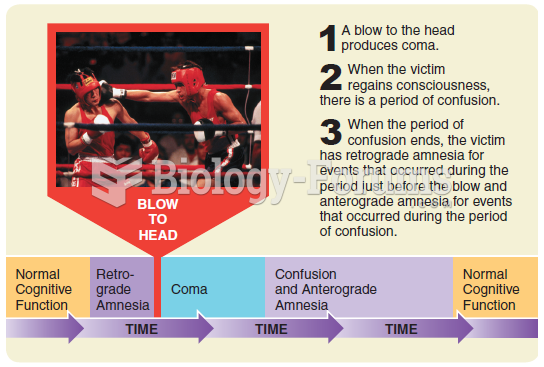|
|
|
Although the Roman numeral for the number 4 has always been taught to have been "IV," according to historians, the ancient Romans probably used "IIII" most of the time. This is partially backed up by the fact that early grandfather clocks displayed IIII for the number 4 instead of IV. Early clockmakers apparently thought that the IIII balanced out the VIII (used for the number 8) on the clock face and that it just looked better.
The oldest recorded age was 122. Madame Jeanne Calment was born in France in 1875 and died in 1997. She was a vegetarian and loved olive oil, port wine, and chocolate.
Alzheimer's disease affects only about 10% of people older than 65 years of age. Most forms of decreased mental function and dementia are caused by disuse (letting the mind get lazy).
This year, an estimated 1.4 million Americans will have a new or recurrent heart attack.
Asthma occurs in one in 11 children and in one in 12 adults. African Americans and Latinos have a higher risk for developing asthma than other groups.
 The early development of the mammalian brain illustrated in schematic horizontal sections. Compare ...
The early development of the mammalian brain illustrated in schematic horizontal sections. Compare ...
 The retrograde amnesia and anterograde amnesia associated with a concussion-producing blow to the ...
The retrograde amnesia and anterograde amnesia associated with a concussion-producing blow to the ...





